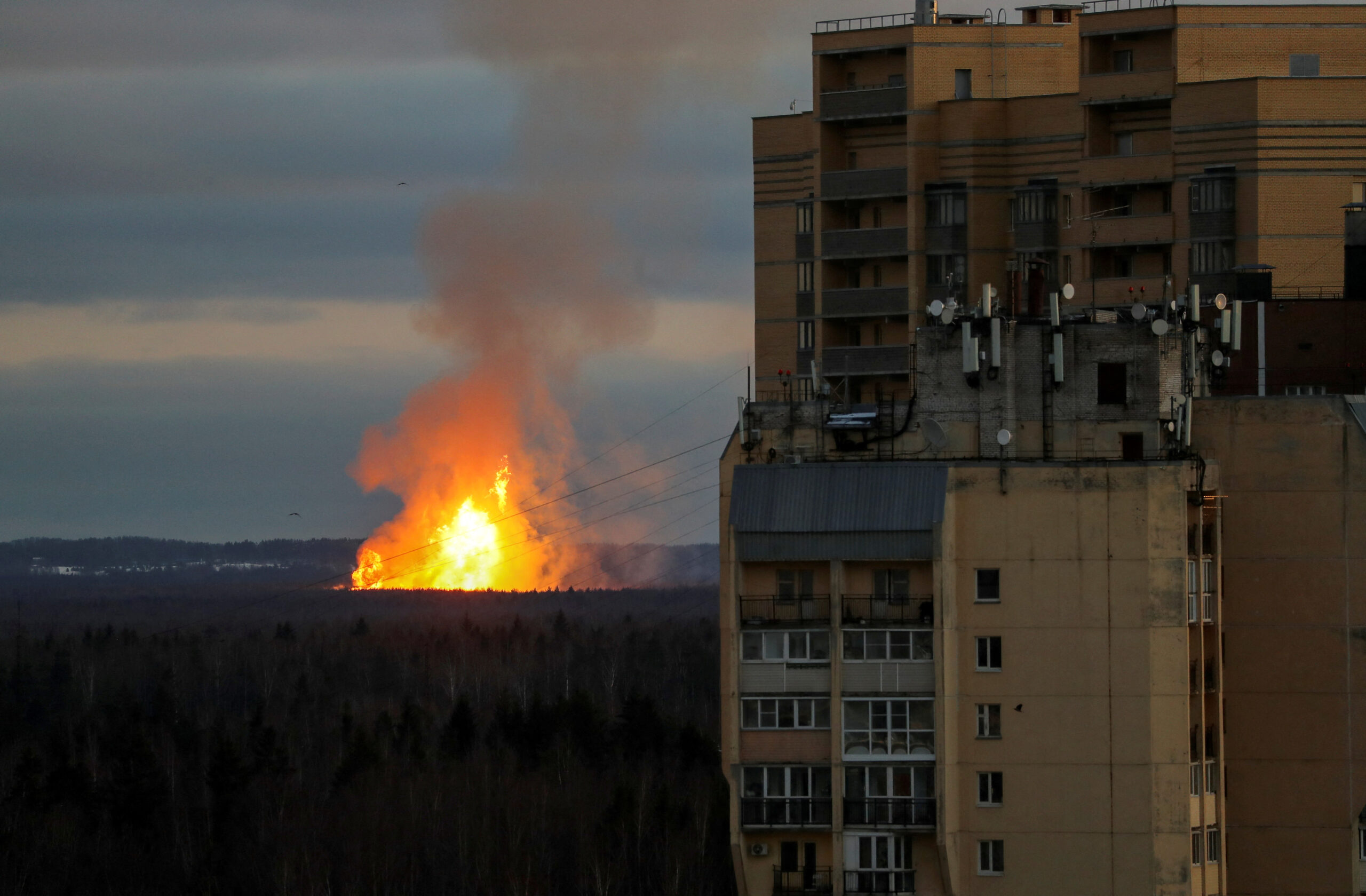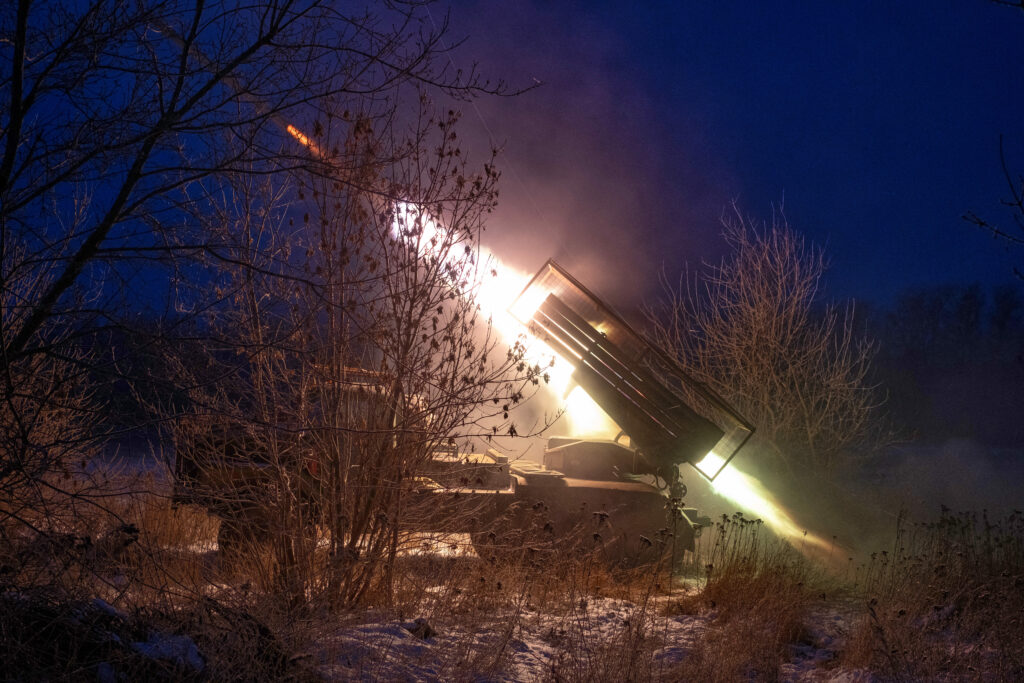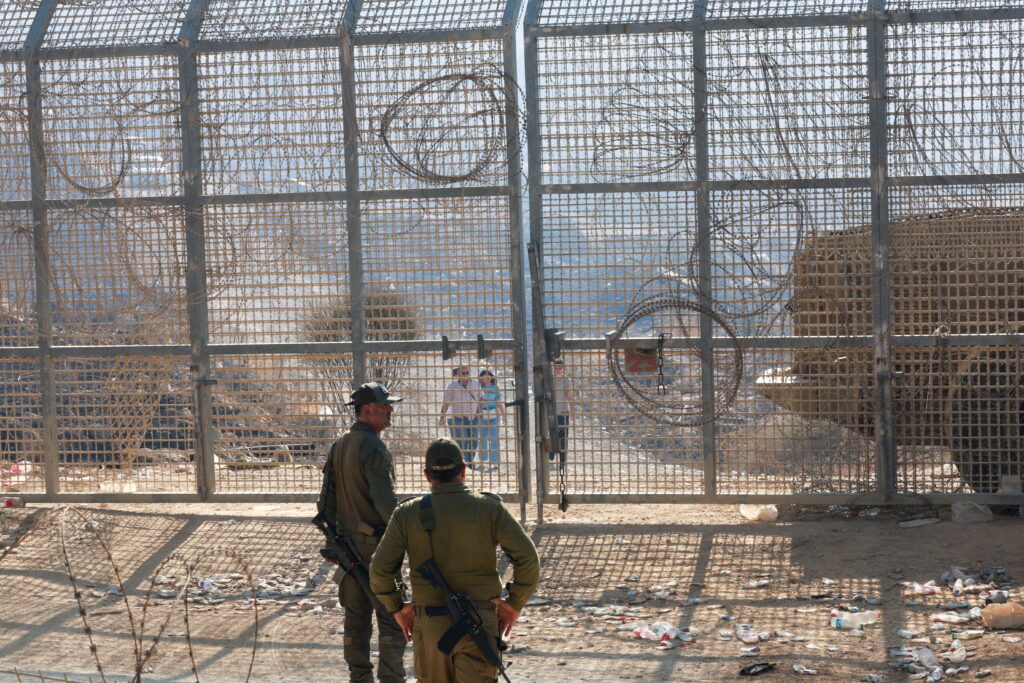Right from the onset of the invasion of Ukraine, many Russians have been morally active in opposing their government. Indeed, a spate of so-called ‘partizan’ actions have recently been gaining more media prominence, with activists showing a readiness to speak to the press. These often violent acts — and the news attention they are now getting within Russia — does raise a few questions. Who are the people carrying this out? Is violent action worth the risk or even effective? Why do their actions provoke such strong debate among Russians opposing the war; and what does this all tell us about the relative constellation of political positions within anti-Putinists at home and abroad? Finally, it provokes a more fundamental question of interest to specialists, general observers and the field of policy alike: What kind of activism is really possible in Russia today?
The most prominent visible anti-war direct actions have been the firebombing of enlistment offices. These actions began right after the invasion. The question of how effective or organised such attacks are is debatable. On the one hand these are strikingly symbolic acts: it is a major statement to throw Molotov cocktails through the windows of offices of the state where paper records of military service are kept. Practically, the burning of those records might prevent or impede the mobilization of soldiers.
On the other hand, the attacks seem disconnected and disorganised. They are usually completely ineffective: the fires do not damage actual files. They are very high risk too: many perpetrators have been apprehended and then faced long jail sentences. Perhaps most importantly they elicit mixed feelings even among those who are anti-war. This is because they mainly fall outside the usual framing of non-violence and carefully considered and organized protest in Russia. But also because such attacks usually mean risks to residential buildings or civilian personnel like the night watchman. Furthermore, such ‘hothead’ activism often elicits unease even among those opposed to the war. Such actions seem quite alien to the imagined world of morally conscious social dissidence, with those carrying them out likely to be labelled ‘hooligans’ or misfits.
That said, a recent series of interviews in the free Russian language press in January 2023 has brought more attention to activists derailing trains and damaging rail infrastructure. One group in particular, the Combat Organization of Anarcho-Communists (BOAK), was covered by BBC Russian (also, Doxa, Holod, Insider). The coverage detailed the torture of relatives of BOAK members who had fled Russia, and chronicled seemingly random harassments of former leftist activists. Many of these activists had only the mildest of credentials for direct action, and are hardly likely to be engaged in violence. At the very least this would imply that the FSB do not have a good idea of who is carrying out such actions; more likely, though, the reporting reveals how the violent acts are themselves the work of radicalized individuals or cells disconnected from each other and from the ‘mainstream’ of leftist opposition in Russia.
Furthermore, according to the BBC, those arrested for direct anti-war actions are not supported by prominent political human rights organizations: «Most human rights organizations do not help the authors of direct actions for various reasons.» Instead, the tiny organisation Solidarity Zone does this. In turn, by examining Solidarity Zone we can get an insight into how organized anti-war direct action is. Most people they support are ‘moral’ objectors acting alone. Either BOAK and other organisations are effective in not getting caught, or are just ineffective in their actions. A Doxa review of rail sabotage shows military traffic is not the main target of action.
There is no reason to doubt that very small cells of organized resistance like BOAK exist; but reading between the lines of their interviews where they stress organizational security, they are rightly so concerned to protect themselves that their actions are highly constrained. Of course this is the age-old advantage and disadvantage of dispersed direct action: cellular structure means you are protected somewhat, but also constrains ability to multiply your resources and do more than derail a train. One underappreciated reason for the highly limited actions is the high surveillance capacity of Russian state. Centre-E (anti extremist police of the Interior Ministry) and the FSB have good records of almost everybody even remotely likely to be willing to engage in direct action as a member of existing left organizations along with right-wing groups. This are because most people radicalized enough to be part of an organization like BOAK is likely to have been previously arrested for protest. Big cities and main roads have very good physical surveillance infrastructure and Moscow is a world leader in face recognition roll out. A characteristic response when I interview leftist activists is their realistic assessment of being caught or interdicted in action. Many therefore ‘lie low’. Many left Russia and effectively gave up on Russia-related activities. In my research on activists and activism I focus on people engaged in much more mundane ecological activism. They are are not blowing up railways lines but it is worth admitting that the tight-knit networks of left-orientated action means they might feasibly know of people who do carry out direct actions, though direct actors’ operational security is high.
Along with the relevance of strong state surveillance there is also the legacy of long-term learning by activists themselves. Visible in the BBC piece is a ‘genealogy’ of action, framing and organization going back to 2011, after which many people were radicalized by the experience of participation in the electoral fraud protests and their failure. In the BBC article there is also a note on transnational horizontalism — Russians learning from the Belarus experience of rail sabotage. Russians learned lessons without needing an organised hierarchical structure ‘horizontally’. This was thanks partly to social media. The question of the validity of leaderless and technologically-mediated resistance in general deserves more attention in all kinds of study of collective action.
Sometimes social scientists, even critical ones, are pretty dismissive of horizontalist ideas of resistance in Russia because it reminds them of the failure of the Occupy movement which insisted on non-hierarchical decision-making. This seems to me shortsighted and also a product of Westerncentric approaches. In Latin America, for example, there is a long tradition of acting horizontally, both in practice and articulated in political thinking. Now there is of course a reasonable criticism that horizontalism is always constrained by its inherent democracy-from-below ethos which is seen to prevent it from developing into a broader ‘social movement’. But dismissal of less clearly organized movements from below in favour of journalists’ and scholars’ focus on visible (and sexy) phenomena like Navalny, or Pussy Riot means we miss a big part of the picture. Grassroots mobilization is possible in Russia especially around concrete issues like trash disposal, pollution, and the loss of public spaces to development. With my coeditors Regina Smyth and Andrei Semenov we consider these and other issues in a forthcoming book on Varieties of Activism in Russia. Even in Navalny’s case, the momentum and organization was sustained by dispersed yet dedicated and geographically distinct groups who were attuned to local political patterning.
It is tempting to think big political changes in Russia are only possible as elite projects: whether that is reform, regime change, or renewal. However there is no reason to think it impossible that a movement representing a transition from Putinism might grow organically from sources that are neither openly oppositional, nor necessarily elite/political entrepreneur vehicles. And so it is just as key to use the micro seismometer of social research to detect such sources. This was shown in the scholarly work on horizontalism in South America, and in research on the Arab street which contributed to revolutions across North Africa and the Middle East in the 2010s. While coalescence has not been possible of different interest groups in Putin’s Russia, protest potential remains high, as experts such as Petr Bizyukov note. Bizyukov runs an observatory of labour protests throughout Russia. If the war continues to go badly, a combination of negative economic, social, and war sentiments might finally precipitate change, even if that change is not so dramatic as the wholesale elite turnover that many fantasize.
The classic instruments of horizontalism are road blockades and community assemblies along with experiments in worker democracy. This represents a readiness in some American countries to contest public space and occupy it for long periods of time. While in Russia there is also a tradition of road and rail blocking, forms of protest from below in the future might well emerge in ways specific to the local community identities — along ethnic, religious, or other lines. Similarly, moral objection to a war of conquest and to the senseless deaths of Russian citizens are strong motivation, as evidenced in the ‘wild cat’ actions of individuals who more or less spontaneously decided to attack recruitment offices, or even recruiters themselves. As the war drags on, the decisions of individuals are no less important. Workers in munitions plants, for example, may resort to individual acts of sabotage. In a write up of anti-war actions, TheIns points to these less visible types of opposition and activism, using the term ‘kosyachit’ – meaning to do shoddy work, in this case on purpose. Indeed, it may be telling that there are three different words for ‘sabotage’ in Russian while English only uses one. There is a perception there have been more fires and accidents than usual because of subterfuge. While fires in military facilities in Moscow, Tver, or Irkustsk might be spectacular examples of indivdual or group action, any kind of foot-dragging and petty sabotage might be termed ‘infrapolitical’ resistance, after the famous term coined by James C. Scott to describe the ‘weapons of the weak’ against those who dominate them.
At present the public discourse on Russian direct activism is dominated by the liberal caste of observers, many of whom are in exile. These come with numerous implicit and explicit assumptions as Doxa editor Armen Armamyan points out — many activists are conditioned to avoid direct confrontation with the authorities. Assumptions mix ideology and morality; frequently direct action is seen as immoral and impractical. They see attacks on enlistment offices as ‘useless’ and the risk of jail too high. Bolotnaia — the peaceful mass demonstration from 2011−12 is still held up as an ideal type — a peaceful protest which had the potential to unseat an authoritarian leader. Some kind of future coalescence of metropolites in (peaceful, and morally conscious) street protest is still seen as a viable pathway to post-Putinism and the end of war. One can also detect moral distaste or even apprehension among some observers towards the direct actions of groups like BOAK. But direct action, peaceful protest and picketing, along with discreet and stealthy infrapolitics are all equally valid forms of resistance to war.









